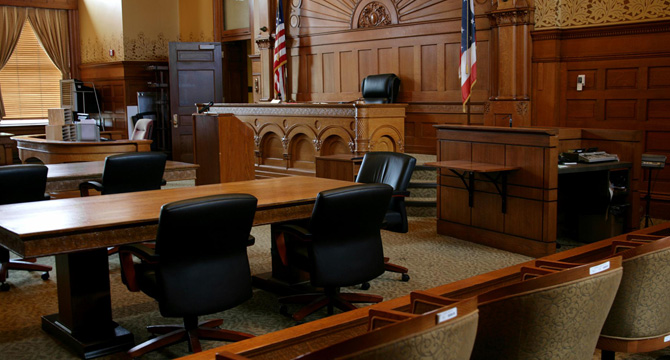
On June 22, 2017, the Wisconsin Supreme Court took a 3-Iron to common intuitions about who is, and who is not, a dealer protected by the Wisconsin Fair Dealership Law (WFDL). In Benson v. City of Madison, 2017 WI 65, the Court found that four golf pros—clearly not your typical dealers—were protected by the WFDL, meaning that their contracts for managing Madison’s golf courses could not be terminated by the City, absent statutorily defined “good cause.”
Among WFDL cases, Benson is indeed significant. In holding that the WFDL can apply to municipalities, the Court opened up wholly new relationships to WFDL protection. And the Court’s ultimate conclusion—that the relationship between the municipality and the golf pros constituted a “dealership” under the WFDL—was also reached without a clear application of the rigorous community of interest analysis seemingly required by the Court’s own prior case law. These holdings have potentially far-reaching consequences, both for Wisconsin municipalities and businesses as well as for those in other states whose courts look to Wisconsin’s jurisprudence when interpreting their own dealer laws. (See Key Takeaways, below.)
The Facts
The facts in Benson were these: The City of Madison contracted with four golf pros to “operate, manage, and provide certain services” at four public golf courses owned by the City. The golf pros collected greens fees (but received no money from them); hired and managed attendants; supervised golfing on the courses; operated the clubhouses, pro shops, and concessions (for which they purchased all supplies); and gave lessons. In 2012, the City informed the golf pros that it would not be renewing its contracts with them, and the pros filed suit, alleging that the City had failed to comply with the WFDL. The Dane County Circuit Court granted summary judgment to the City, finding that the relationship was not a “dealership” within the meaning of the WDFL. The Wisconsin Court of Appeals affirmed, explaining that the golf pros had not been granted the right to resell any of the City’s services; rather, the Court of Appeals thought that the correct way to conceptualize the relationship was that the golf pros were selling their own professional management services back to the City.
The golf pros appealed again, and the Wisconsin Supreme Court took the case. The issues were twofold: (1) whether the WFDL could apply to the City in the first place, and (2) whether the relationship between the golf pros and the City constituted a “dealership” under the WFDL, i.e., were the golf pros selling the City’s services or their own and, if the former, did a community of interest exist?
As to the first issue, the Court looked to the language of the statute, which defines “dealership” as, in part, “a contract or agreement…between 2 or more people.” In a rather lengthy explication, the Court concluded that because the statutory definition of “person” included corporations, and because the City is a municipal corporation, the statute applied by its plain terms to the City.
Next, the Court analyzed whether the relationship between the City and the golf pros was a “dealership,” which required the Court to find that (1) the contract granted the golf pros the right to sell or distribute the City’s goods or services, and (2) there was a community of interest between the parties. The Court concluded that because the contract gave the golf pros the “unqualified authorization to transfer [access to the City’s golf courses] at the point and moment of the agreement to sell,” the golf pros had been granted the “right to sell” the City’s services as contemplated by the WFDL. This conclusion was reached in spite of the fact that the contract did not give the golf pros pricing authority or the latitude to negotiate other fundamental sales terms.
Finally, the Court found that there was a “community of interest,” defined as a “continuing financial interest between the grantor and grantee in either the operation of the dealership business or the marketing of such goods or services.” Two features of the relationship informed the Court’s conclusion: a shared financial interest in the operation and marketing of the golf courses, and a high degree of cooperation and coordination in the business relationship. In its analysis, the Court pointed to the substantial resources expended by the City, the joint operation of the golf courses, and the lengthy relationship between the two parties. The Court did not, however, undertake the multi-factored Ziegler test in arriving at its conclusion.
Key Takeaways from Benson
- “Dealers” don’t always look like dealers. Prior to Benson, few would have guessed that golf professionals could be protected by the WFDL. Manufacturers are advised to dismiss their common intuitions about who fits the profile of a “dealer” and what a “dealership” looks like. Such intuitions may not always serve you well.
- Holding that municipalities are “persons” subject to the WFDL is consequential. Historically, Wisconsin municipalities have had wide latitude when deciding to outsource government functions, such decisions often being tied to political circumstances. Benson upsets that dynamic, however, as municipalities will now need to consider whether the WFDL protects independent contractors fulfilling government functions. Justice Abrahamson’s dissent points to this, noting the lack of “any reported case, either in Wisconsin or in any of the other many states with similar dealership statutes, holding that a municipality is subject” to a dealership statute, and admonishing the majority for failing to consider “the consequences of its interpretation of the word ‘person,’” which could produce “unreasonable results.”
- The WFDL’s anti-waiver provision means what it says. In a subtle rebuke of the lower court, the Court dismissed the City’s contractual disclaimer that it had not granted the golf pros the right to sell or distribute the City’s goods or services. In the Court’s view, this was simply an attempt to contract around the WFDL.
- Grantors should not presume that a thorough community of interest analysis will be performed. When battling WFDL claims, putative grantors have long focused their energy on undercutting the community of interest requirement, specifically, by addressing the ten-or-so factors (the “Ziegler” factors) courts have identified as integral to the analysis. See Ziegler Co. v. Rexnord, Inc., 139 Wis. 2d 593, 407 N.W.2d 873 (1987) (identifying the following factors to be analyzed when determining whether a community of interest exists: (1) the length of the parties’ relationship, (2) the extent and nature of the obligations imposed by the parties’ agreement, (3) the percentage of time or revenue the grantee devotes to the grantor’s products or services, (4) the percentage of the grantee’s gross proceeds or profits derived from the grantor’s products or services, (5) the extent and nature of the grantor’s grant of territory to the grantee, (6) the extent and nature of the grantee’s uses of the grantor’s commercial symbols, (7) the extent and nature of the grantee’s financial investment in the inventory, facilities, or goodwill of the alleged dealership, (8) the personnel devoted to the alleged dealership by the grantee, (9) the extent of the grantee’s expenditures on advertising or promotion of the grantor’s products or services, and (10) the extent and nature of any supplementary services provided by the grantee to consumers of the grantor’s products or services). Benson suggests that such an analysis may now be passé, as the Court fails to address the Ziegler factors or otherwise dig into or apply case law surrounding the community of interest. Instead, the Court drastically shortens and simplifies the community of interest analysis. Putative grantors should take this into account when assessing risk.

